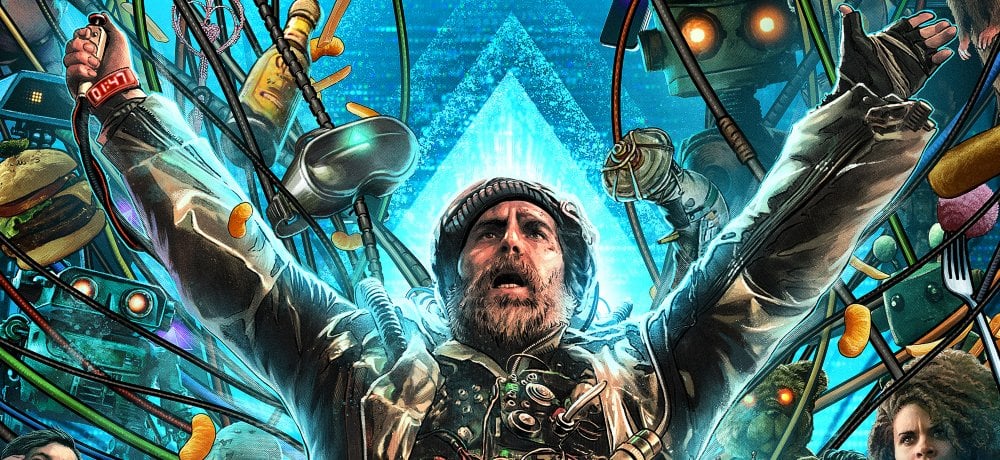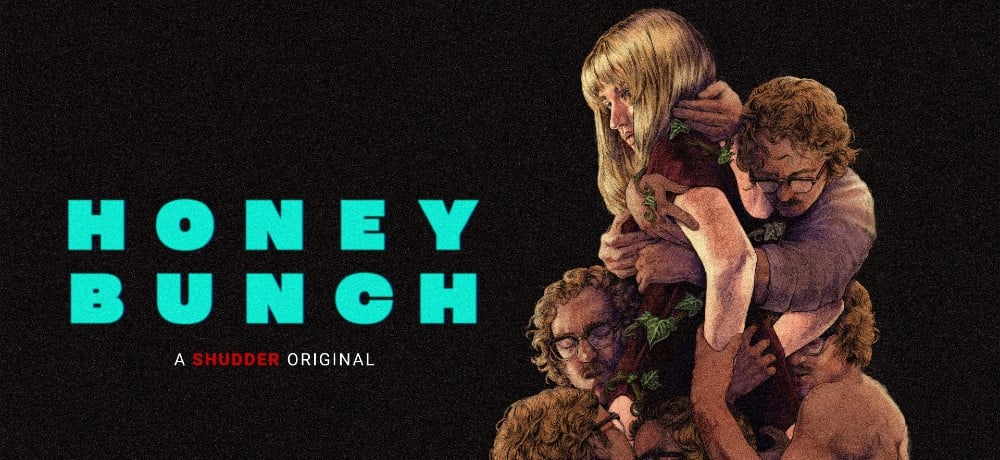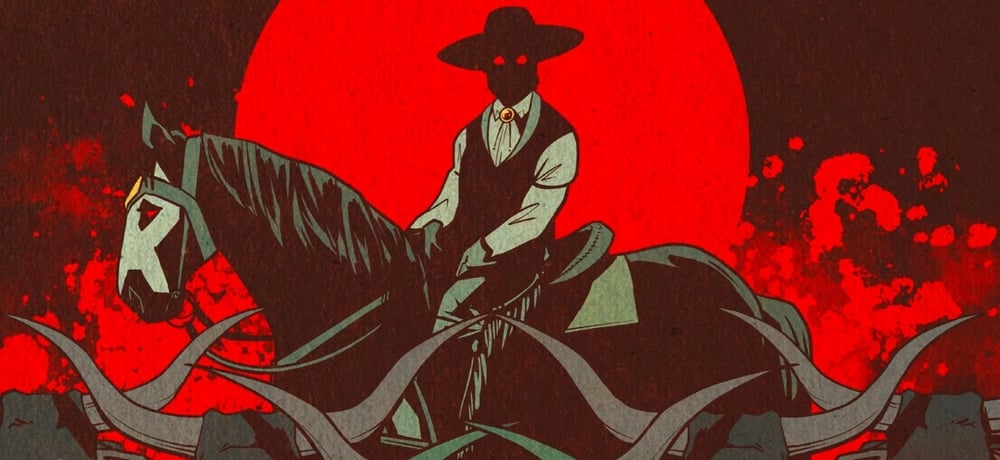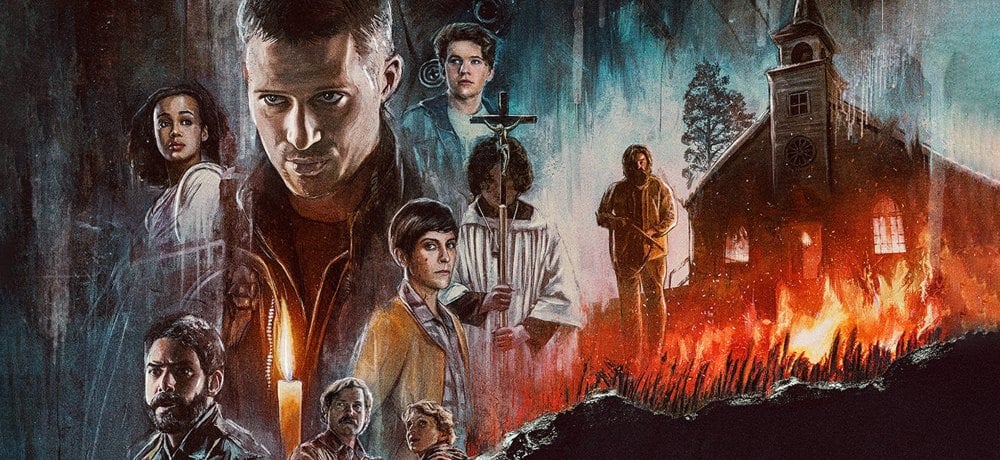






Hey, everyone! Last week, we brought you the first part of the interview that Daily Dead recently participated in with both Mike Flanagan and Trevor Macy in honor of the release of Midnight Mass on Netflix (you can read it HERE). And now that it seems like more fans have been able to catch up with the series, we’re back with part two of the discussion that gets into a handful of spoilery topics, including some of the inspirations behind the story of Midnight Mass, the link between horror and religion, and more.
Once again, the following does contain spoilers, so if you haven’t had a chance to watch Midnight Mass yet and don’t want to know anything before you get to check it out, then I’d definitely recommend skipping this interview for the time being.
So Mike, what are some of your favorite vampire inspirations?
Mike Flanagan: My favorite vampire movie is Herzog's Nosferatu with Klaus Kinski. That is my favorite movie vampire. And that film, I think, is a vampire story as high art. I also adore From Dusk Till Dawn. It'll always have a really wonderful place in my heart for that one. And Salem's Lot.
Trevor Macy: I have to give a possibly unpopular shout-out to Interview with the Vampire.
Mike Flanagan: Oh no, Interview with the Vampire's great.
Trevor Macy: Not only do I love the book, but I love the movie for largely different reasons.
Mike Flanagan: That's a great, great, great film. I read Dracula young enough for it to really burrow in for me. And I read ’Salem's Lot young enough for that to color an enormous amount of the work I'll do for the rest of my life. But the thing that I love about the vampire as a cinematic tool is how malleable it is. We all agree that there's no canon, there are no rules. In fact, part of the joy is seeing what rules people cherry pick as they approach a vampire story. I get a thrill out of it. It's like you put on 30 Days of Night and it's like, "Oh, what are they doing? All right. So they're pulling this, they're not doing that. Oh, cool." I'm watching American Horror Story right now and I was like, "Ah, we're back outside. We're back in the sunlight. Okay, cool." It's really neat to see what ingredients people choose and then how they mix them together into something fun. But yeah, for me, Herzog had it nailed, though, and I think used the vampire to say the most about human nature. I also think Klaus Kinski's creature design is perfect. We winked at it a few times when we designed our guy.
With Midnight Mass, you subvert a bunch of tropes about vampires, but you also subverted a bunch of tropes for the evil priest character in horror. I thought that was really fascinating, especially because you have this charismatic young priest where he's not a villain at all, he's more of a victim than anything else.
Mike Flanagan: Thank you, and on behalf of Hamish [Linklater], thank you, because you're articulating exactly what he wanted to get across with his performance. The thing about the show, in general, was that as we talked about morality and belief systems and tribalism and things like that, the thing we kept coming back to was that authentically through and through evil people are very rare. We're all way more complicated and the heroes are flawed and the villains have good traits. And it's hard to navigate people because of that. It was fun to not just do the evil priest or the Leland Gaunt. It was really fun not to go too far that way. It's also been done beautifully before, so we were always worried about walking a well-trodden path and doing it less well than what came before.
The humanity of Father Paul was something that was baked in relatively early. The project did start as a much more polar battle between Riley, who was good, and Father Paul, who was bad. And as I think my worldview evolved over the years, the line between them got blurrier and blurrier. And when it became clear that Father Paul could still do all of the horrible things I needed him to for the story while being a good person with a pure motive, then I felt like we had a show that was about something. Because I think most of us don't wake up in the morning and set out to do something awful. Even when we find ourselves doing awful things, we started out wanting to do something good. And I think we see this all the time. But there's only one character in the whole show who I think is evil and it wasn't Father Paul. And even there, there's nuance.
Trevor Macy: Yeah, Father Paul is really interesting because it would be easy to say the road to hell is paved with good intentions about him, but the more interesting questions are, and Hamish did such a good job of wrestling with these, “Why is he doing it and what's he telling himself?” And those things I think you can really see in his performance. Hamish is incredible to work with and he really brought dimension to those two questions.
Mike Flanagan: And he said it the first day, he said that he's doing something good. He's the hero of his own story. And he's doing something difficult. He sees himself as sacrificing much to do something really good for people he cares about. And yeah, Hamish tuned into that instantly and never, never wavered from it. Even filming scenes where he's like, "This one's tougher to justify, but I'm there. I got it." But yeah, he's a remarkable performer. You're going to see him in more of our stuff because he's family now.
I was hoping you'd talk about your research process in terms of digging into the scripture and the religious aspects of Midnight Mass. I've always thought that there was this connective tissue between horror and religion that I think the people on the religious side of things have never really wanted to acknowledge. But it's there, and I love the way that you guys explored it here.
Trevor Macy: I actually want to start this, because it is literally impossible to overstate how well Mike knows the Bible. I learned this pretty early when we had dinner with an investor in Intrepid. And the conversation was not only robust philosophically, but the quotations he can pull just out of the air are pretty remarkable and uniformly accurate. And I know that because I checked several of them afterward. But the baseline of knowledge that he brought to this, and the amount of thinking he's done is part of the reason I think it's right to say that this is “Full Flanagan.” They've really informed the worldview that he brought into the writing process. But since I've said something about you that you can't say about yourself, go ahead and answer.
Mike Flanagan: When I was a kid and in Bible study, the horror elements embedded in the Bible are impossible to ignore. And that's the thing. We were talking earlier today about something like this, where he was saying, "Oh, you've really connected horror and religion." I was like, "Not even a little bit. No, we didn't do that at all. That's already there." If you open the book, you've got angels patrolling through Egypt and slaughtering the firstborn, and you've got rivers turning to blood. You've got plagues of locusts and a pillar of fire, which is the first sky beam in entertainment history. And you've got a God who's thrilled to just murder people at will and full of wrath, and women, children, doesn't matter. He gets angry, drowns the planet. You've got demons, you've got talking serpents, you've got people being torn apart, tortured. It's all there. The Bible is a blood-soaked text. And what I think has actually happened is that a lot of horror literature has just liberally borrowed from a number of scriptures and ancient mythologies. This isn't unique to the Christian Bible at all.
And in fact, in a lot of the older religions, the further back in history you go, the bloodier it is, and the more horrific. I think it's because the reason we need horror and the reason we're all attracted to religion at various times in our lives comes from the same issue, which is our fear of the natural world. If there's a volcano that erupts and we don't understand what a volcano is, we create a religion around it. We create a God to explain why all this fire came out of the ground and killed everybody.
If there's a drought and our crops die, or there are predators in the night that are breaking in, we are storytellers. That's how we explain and understand the world. We can only seem to process the world around us if we put it in a story, and we let the story deal with it. And so a lot of our myths, a lot of our religions come from the same anxieties that we also explore in horror fiction. We don't want to deal with the violence inherent in us as individuals, so we confront it cathartically in a slasher movie.
Trevor Macy: Or more often, as is done in the Bible, with a supernatural explanation.
Mike Flanagan: Yeah. We trade in parables, and I think that's why it's so hard to extract the supernatural that we use for entertainment from the supernatural that we use in our everyday religious worship. You can't be a Christian without believing in a man rising from the dead. That is a prerequisite for membership. That's right there. The fact that I think we've built a wall between the horrors that exist in biblical text and scripture and in the number of religions and the horror that we consume as entertainment, it's a pretty flimsy wall. It's something that I think makes us feel more comfortable at church.
Trevor Macy: I mean, doesn't transubstantiation turn everybody into a vampire?
Mike Flanagan: Which was a question in Bible school I would ask, "So, the wine turns into Jesus' blood, literally then?" And they'd say, "Yes, it's literal. This is not symbolic." I'd say, "Okay. If it's literally transformed into blood and we're drinking it so that we can live forever, this seems to me like a short leap to the vampiric myth." So yeah, I think they are inextricably linked. I think it's all just a function of how we confront ourselves in the world. I also believe that the Bible is malleable as well. You can find a text, you can find a passage to support just about anything if you try hard enough. In the challenge of, "Can we use The Bible to explain and justify vampirism?" the answer was yes. That was delightful and really, really fun to dig into.